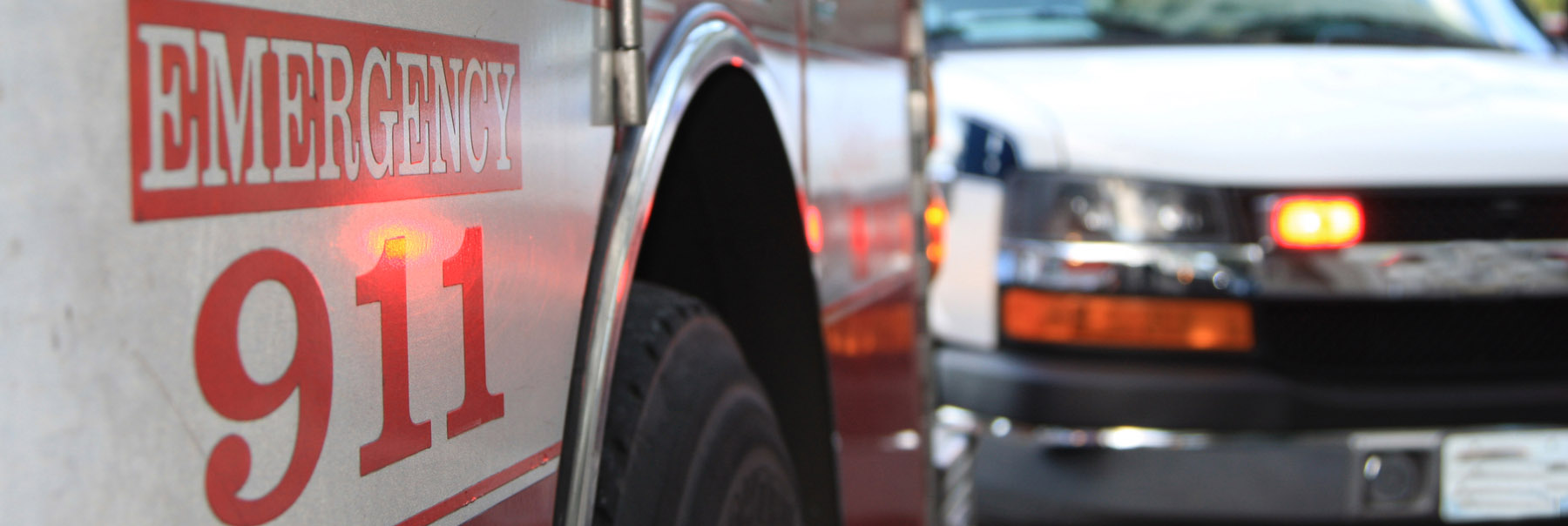What’s the Best Way to Get to the ER?

When faced with the choice between spending hundreds or thousands on an ambulance ride to the emergency room, more people are taking Uber or Lyft.
A recent report found that ambulance use dropped by seven percent in cities where rideshare services exist. The trend makes sense from an financial point of view, but is it safe?
In a previous story, Dr. Alberto Jacir, a family medicine physician and medical director of UHealth Jackson Urgent Care Clinics, explained when to go to the emergency room (ER) and when you should opt for an urgent care clinic. Here are some of his guidelines to help you decide the best way to get there.
Safety First
When a serious injury, illness or mental impairment occurs, he says, “Always default to 9-1-1. The rescue team will assess your vital signs and determine whether you need an ambulance or if you or someone else can drive you to medical care. Calling 9-1-1 doesn’t automatically mean you’ll be transported by ambulance.”
Emergency responders can begin treatment right away and continue treating you on the way to the hospital. “If you use a rideshare service, you don’t have someone to go with you to the ER,” says Dr. Jacir. If your condition is severe, that scenario could be life-threatening, but even in less serious situations, not having someone with you in the ER is ill advised.
Assess your situation
There are some simple, yet vital questions to ask yourself to ensure your safety, says Dr. Jacir.
Are you drowsy, dizzy or lightheaded?
“What’s your level of attentiveness? Are you feeling steady on your feet? Anything that impairs your ability to drive is dangerous. Something as common as the flu, for example, causes dehydration, which leads to lightheadedness. If you suddenly change your posture by getting out of bed and into your car, you could faint.”
Are you thinking clearly?
Mental impairment is one reason many outpatient procedures, such as endoscopies and colonoscopies, require a family member or friend to accompany the patient. “Some people experience temporary amnesia after getting anesthesia. It can affect cognitive ability.”
A suspected stroke always requires emergency care. In certain types of stroke, there’s a small timeframe to administer a drug that could save your life. Learn to recognize the signs of stroke.
A change in mental status, i.e., confusion, suicidal thoughts, intellectual, personality or behavioral changes requires an ambulance.
How’s your breathing?
Are you having an asthma attack or other breathing disorder? Call 9-1-1.
Are you in pain?
Severe or ongoing chest pain justifies calling 9-1-1, but remember, not all heart attack symptoms start in the chest. Symptoms may also mimic a bad case of heartburn, especially in women. Call 9-1-1 if you experience severe pain in any part of your body.
Are you pregnant?
Call an ambulance. If you do need hospital care, a rideshare won’t get you there faster. Even if paramedics decide a family member or friend can safely drive you, you’ll have more peace of mind along the way.
Are you bleeding?
A small wound with controlled bleeding? Hop in Uber, ask a friend to drive you or drive yourself to the nearest urgent care clinic. Uncontrolled bleeding or suspected internal bleeding? An ambulance is the right call.
Injured?
Call a friend, family member or rideshare service for a small, non-bleeding foot, hand or eye injury when it’s unsafe to drive yourself to an urgent care clinic. If you have a noncontagious infection, but aren’t up to driving, have someone take you to urgent care. “The urgent care clinic can coordinate your care and transportation, if you need hospital care. We can arrange basic or advanced life support transportation.” When an urgent care physician calls ahead to the ER, you move ahead in the triage queue.
If your wound is serious, 9-1-1 is essential.
Contagious?
If your flu or other illness is so bad you can’t get yourself to urgent care or the hospital, call a family member or friend, not Uber. “You are a walking biohazard when you have a contagious illness. Be considerate of the driver and their next rider. Find another means of transportation.”
What do Uber and Lyft think of the rideshare-to-ER trend?
Not surprisingly, both rideshare company policies state, in essence, that their service is not a substitute for law enforcement or medical professionals. Like Dr. Jacir, they recommend calling 9-1-1 in the event of a medical emergency. “When in doubt, use your common sense,” Dr. Jacir says.
After all, the life you save just might be your own.
Nancy Moreland is a regular contributor to UMiami Health News. She has written for several major health care systems and the Centers for Disease Control and Prevention. Her writing also appears in the Chicago Tribune.
Tags: ambulance, Dr. Alberto Jacir, emergency care, emergency medicine, emergency room admissions, ER, heart attack, injury, stroke, urgent care
